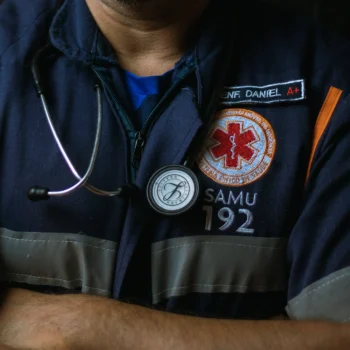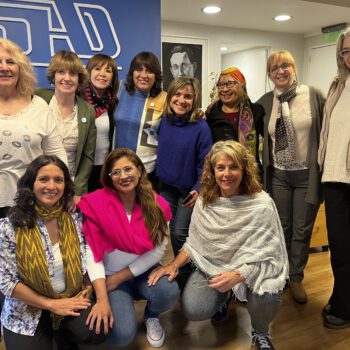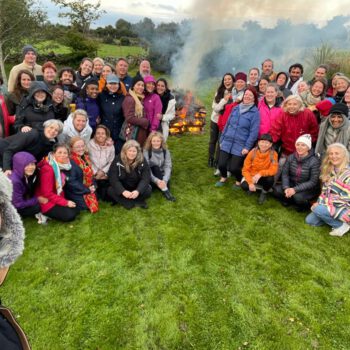A clinical psychologist with youth, children, and those responsible for them, Dr. Neufeld has been helping adults provide conditions in which children flourish for over five decades. A foremost authority on child development, stress, trauma and resilience, he is also the best-selling author of the timeless book, Hold On to Your Kids: Why Parents Need to Matter More Than Peers.
This post is a short edited excerpt of Dr Neufeld’s interview which explores emotional connection, the therapeutic power of play and much more.Listen to his full interview on The Gifts of Trauma Podcast.

I knew of Gabor. He was three years ahead of me in university, and edited the university newspaper. He had a lot of courage, as he was a radical leftist, quite pro-Palestinian, which caused a stir, as he’s Jewish in a very tight Jewish community. But I didn’t know him until his wife dragged him to my parenting class. As I observed him taking in my teaching, his eyes opened as if he was finding what he was seeking. But when I learned he was writing up some of what I was teaching, I was angry. These were my ideas! He did credit me as their source, but… I’m slow to write and he’s a natural writer.
Our wives got us together and we became very good friends and collaborated on Hold On to Your Kids. I had already written the manuscript, so my job was to make my writing make sense to Gabor, and his job was to take it from there, to transform it with his beautiful writing skills. I joked that my ‘writing crayon box’ only had 12 colours, while his was the big ‘64 color box’. It was a beautiful relationship and I wish it could have gone on, but he had so much of his own work that he wanted to write and publish.
While I’ve retired from some things that were quite preoccupying, like teaching at the university and doing therapy in the trenches, I still mentor therapists, speak internationally and direct the Neufeld Institute. That’s a full time job, so I’m busier than ever. I also have the privilege of being directly involved in the care of my seventh granddaughter, who’s two years old. This gives me a wonderful opportunity to observe the dynamics I teach about, first-hand. It keeps me young and fills me with stories. Now, whenever I speak, I have so many new illustrations and refreshed insights.
The Neufeld Institute’s mission is to get the message of relation, relationship and being out into the world, to make it as accessible as possible. It offers more than 40 courses in 10 languages that I created for parents, teachers and professionals. I founded it as a non-profit charity because I’d retired from ‘making a living’ to devote myself to what’s most important for those involved with children.
My life’s work has been to help adults provide the conditions for children to flourish. I got here almost by accident as, like Gabor, I was headed for an MD. But I had always wanted to make sense of things, and the ultimate challenge is to make sense of ourselves, so I set my sights on a PhD in developmental and clinical psychology.
Along the way, my first two daughters arrived, and I did not understand what was going on. It was a challenge that launched my career. (I had no idea, at that time, that the secret was to make sense of a 2- or 3-year old.) What I did know was that my interaction with my daughters must not be governed by book-learning, or prescriptions. It must evolve from deep within me. I needed to make sense of my children from the inside out. And that’s been my journey, my quest, ever since.
My insight-based approach meant, rather than trying to think of the right thing to do, you use your eyes to understand your child. It’s deeply ironic, that despite never having had more books, or ‘experts,’ telling us what to do, we’ve never been so dumbed down.
The other thing that struck me, first as a trained behaviorist, then with my children, was to never put conduct before well-being and to never put conduct before relationship. I realized the context for raising children—relationship—was both invisible, and bottom up. To influence children, I needed to cultivate an invisible, inside out, bottom up relationship.
This initiated a wonderful exploration and mapping of a relational-based drive for togetherness. In the context of the ultimate developmental approach, the main idea is that if conditions are conducive, the unfolding of human potential is absolutely spontaneous.
The challenge is, to not react against the results of immaturity, things that have gone wrong, or to pull and push at the maturity of our children, but to provide conducive conditions so nature can take its course with our children. As I learned more and began combining developmental science, attachment science and neuroscience, I wanted to share what I had observed and mapped.
What prevented me from following prescriptive books or expert advice was my own upbringing. Until I was a therapist, I had no idea how fortunate I was to have been raised in a uniquely shame-free environment. My parents had both been deeply shamed, and my mother was a victim of family incest. Despite being very crippled by their experiences, they knew they didn’t have to have the right answers. Instead, they had to be my answer. They invited me to exist in their presence, to love, to belong… Their parenting sowed the seeds which germinated in my own practice.
And once those seedlings began to flourish, over 25 years ago, I recognized a huge impediment. And so, despite having a 2-year client waitlist, I took a year off to completely rethink my approach. That was a huge pivotal point for me, and during that time I realized all of the true transformation and growth I had observed and experienced was driven by a yearning to be the answer to what another human being needed. So it was not knowledge, books, or education that taught me that this yearning to be that answer grew me and healed others. It was getting back into cascading care where we yearn, not to have the answers, but to be the answer for another’s relational needs, for love, belonging, for sameness, for invitation to exist, to be seen from inside out. As we yearn for something, we stretch. We have our tears. We have our processes.
From that point on, I stopped treating adults. Instead I asked my adult clients to focus on a child they cared about deeply. I helped them keep their eyes on that child, to make sense of them, to step up and be the answer. At that point, they would find that something absolutely transformative happened within them. And so, when I talk about thriving children, often I title my presentations, “Becoming the Answer Your Children Need.” Because that is the issue. The focus is on the children, not on how messed up the parent is. My parents were a prime example of this. I was so very fortunate because I did not inherit what would be expected from individuals who were very crippled by the circumstances in their own lives and times.
The Gifts of Trauma is a weekly podcast that features personal stories of trauma, transformation, healing, and the gifts revealed on the path to authenticity. Listen to the interview, and if you like it, please subscribe, leave a rating or review, and share it with others in your community.



